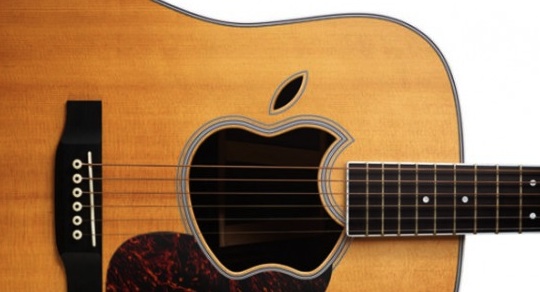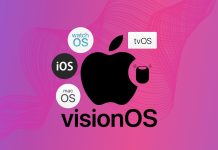 According to an article on CNN, Apple and other online music retailers are in talks with record labels to improve the quality of the tracks they are selling. Citing industry executives who are involved in the talks, the move would offer higher fidelity tracks, perhaps at a higher premium price.
According to an article on CNN, Apple and other online music retailers are in talks with record labels to improve the quality of the tracks they are selling. Citing industry executives who are involved in the talks, the move would offer higher fidelity tracks, perhaps at a higher premium price.
Jimmy Iovine, longtime music executive at Universal Music Group, is quoted as saying, “We’ve gone back now at Universal, and we’re changing our pipes to 24 bit. And Apple has been great. We’re working with them and other download services to change to 24 bit.” Somewhat ironically, his remarks were made during the HP news conference unveiling the TouchPad.
But what advantages would a move to 24 bit recordings have?
I’m about to get a little geeky here, so bear with me. Digital audio, when initially recorded, has two variables. The first is how many samples per second will be taken, the sample rate. These are snapshots of the audio wave, and is expressed in kiloHertz. The second is how fine the gradations between varying audio levels will be, the bit depth. These are numerical values, and the more digits the number has, the more detailed the audio can be. At present, the consumer standard for audio in a physical medium is the venerable CD. The CD stores music at a sample rate of 44.1 kHz, and a bit depth of 16 bits.
I’ve been a recording engineer for nearly 15 years, and I’ve seen the transition from analog to digital, and the very early stages of digital recording. Sample rates in the studio started at 44.1 kHZ and 48 kHz, but have increased to 96 kHZ, and even 192 kHz. Bit depth has also increased, from 16 bit to 24 bit, and more rarely 32 bit. We’ve come a long way, and most would agree that 192 kHz 24 bit recording is pretty close to just listening to the live players in the studio.
What happens to this pristine audio? To master it onto a CD, the audio data must be reduced down to 44.1kHz and 16 bit. Several attempts have been made to deliver higher quality audio on a disc such as SACD or DVD-Audio, but they have not met with much consumer adoption. And when audio is transformed into an MP3, or an AAC file, it is psychoacoustically compressed down to these formats, which no matter how good they may sound, are still ‘lossy’ in that they discard what the codec deems to be unimportant or inaudible information. The benefit is reduced file size, but you lose out something of the original audio quality in the process.
Iovine’s comments don’t really shed much light on how 24 bit music will be delivered. Once an audio file goes through any kind of compression, it is no longer 24 bit or even 16 bit, it is compressed, and the bit depth can be variable depending on the codec. To say that Apple or other online retailers will be moving to 24 bit implies that they will be delivering uncompressed audio, which I find highly doubtful.
Apple has increased the quality of its music tracks before, when they made the move to the iTunes Plus quality. This doubled the data rate from 128 kbps to 256 kbps. At the time, Plus tracks were offered at a premium price, and not all tracks were available. Apple also developed their own Apple Lossless audio format, which compresses the audio in file size while retaining all the audio information. You can choose this option when you’re importing your own CD’s, but you can’t buy Apple Lossless files on iTunes. Some bands such as recent Grammy Winners Arcade Fire have offered Apple Lossless files for purchase from their own website, but not through the iTunes Music Store.
While I’m all for improving the quality of downloaded audio, I’m not sure that it’s as simple as flipping a switch to 24 bit. Uncompressed audio takes up a LOT more storage space, not to mention the increased bandwidth for downloading and serving up such files. It’s a tough sell, especially when most people are happy with what they’ve got.
Article via Cult of Mac.






